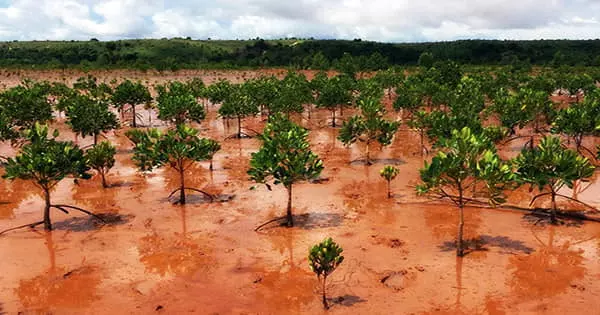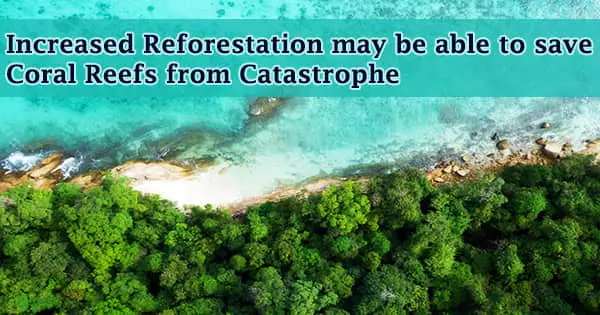According to a study performed by the University of Queensland, increasing reforestation efforts in coastal areas might significantly reduce the amount of sediment run-off reaching coral reefs and increase their resilience. The research looked at more than 5,500 coastal sites from across the globe and discovered that about 85% of them were leaking silt onto coral reefs, making it the second most severe danger to the world’s reefs behind climate change.
If attempts to limit the human effect on reefs are to be successful, Dr Andrés Suárez-Castro of the University of Queensland’s Centre for Biodiversity and Conservation Science said it was critical to address the issue of sediment runoff.
Reforestation is hugely important as it maintains the stability of soils that are vital in limiting erosion risk it also helps to trap more sediments and prevent them from reaching aquatic systems.
Dr. Andrés Suárez-Castro
“Increased sedimentation can cause aquatic ecosystems to be more sensitive to heat stress, which decreases the resilience of corals to pressures caused by climate change,” Dr Suárez-Castro said.
“If the link between the land and sea is not recognized and managed separately, any future efforts to conserve marine habitats and species are likely to be ineffective.”

Increased sediment movement to coastal waterways can be caused by excessive sediment runoff from land clearance and agrichemical contamination near coasts. One of the effects of sediment flow on coral reefs, according to Dr. Suárez-Castro, is a substantial fall in light levels, which are critical for coral and seagrass development and reproduction.
Dr. Suárez-Castro and his colleagues recommend that governments commit to land and forest restoration in coastal areas, which will help minimize sediment flow. The process of reforestation is the planting of trees in a forest when the number of trees is declining.
“Reforestation is hugely important as it maintains the stability of soils that are vital in limiting erosion risk it also helps to trap more sediments and prevent them from reaching aquatic systems,” he said.
Reforestation is essential in combatting or avoiding deforestation or forest degradation, which occurs when forests shrink or disappear entirely. Deforestation can harm wildlife habitats and increase the probability of floods in particular locations, in addition to lowering a forest’s capacity to absorb carbon dioxide (CO2).
Building coral resilience by minimizing silt and pollution is also critical to a coral reef’s recovery potential. Protecting marine ecosystems in the face of climate change will become increasingly difficult, if not impossible unless land management to limit sediment flow becomes a worldwide priority.
Forests are a natural approach to keep CO2 levels in line on the planet. The greater the number of trees, the more CO2 is collected and transformed to oxygen via photosynthesis. Forests assist to reduce the quantity of greenhouse gases in the atmosphere and the impacts of climate change by absorbing CO2.
By expanding the quantity of wooded areas on the world, reforestation can assist optimize forests’ capacities. While the advantages of land restoration initiatives are obvious, the researchers believe it will be difficult to persuade countries and governments to participate.
“It’s encouraging to see many countries with high coral diversity committing large areas to land restoration, however, the cost of reforestation, as well as political and social barriers may make it difficult to achieve these ambitious goals,” Dr Suárez-Castro said.
“Land-based sediments reaching coral reefs could be cut by an average of 8.5 percent across 63,000 square kilometers of reefs if 1000 hectares of forest were restored each coastal basin.”
Dr. Suárez-Castro and his colleagues anticipate that their findings will help local governments identify places where reforestation will have the greatest impact on coral reefs.
“Our approach can be adapted with local data to identify optimal actions for preserving ‘win-wins’ for multiple ecosystems spanning the land and sea,” Dr Suárez-Castro said.
Several worldwide efforts, including as the Paris Climate Agreement, are putting forest restoration to the forefront of global conservation talks, and we hope that our research will help to encourage more informed and educated discussions on the value of a more integrated land-sea strategy.
















